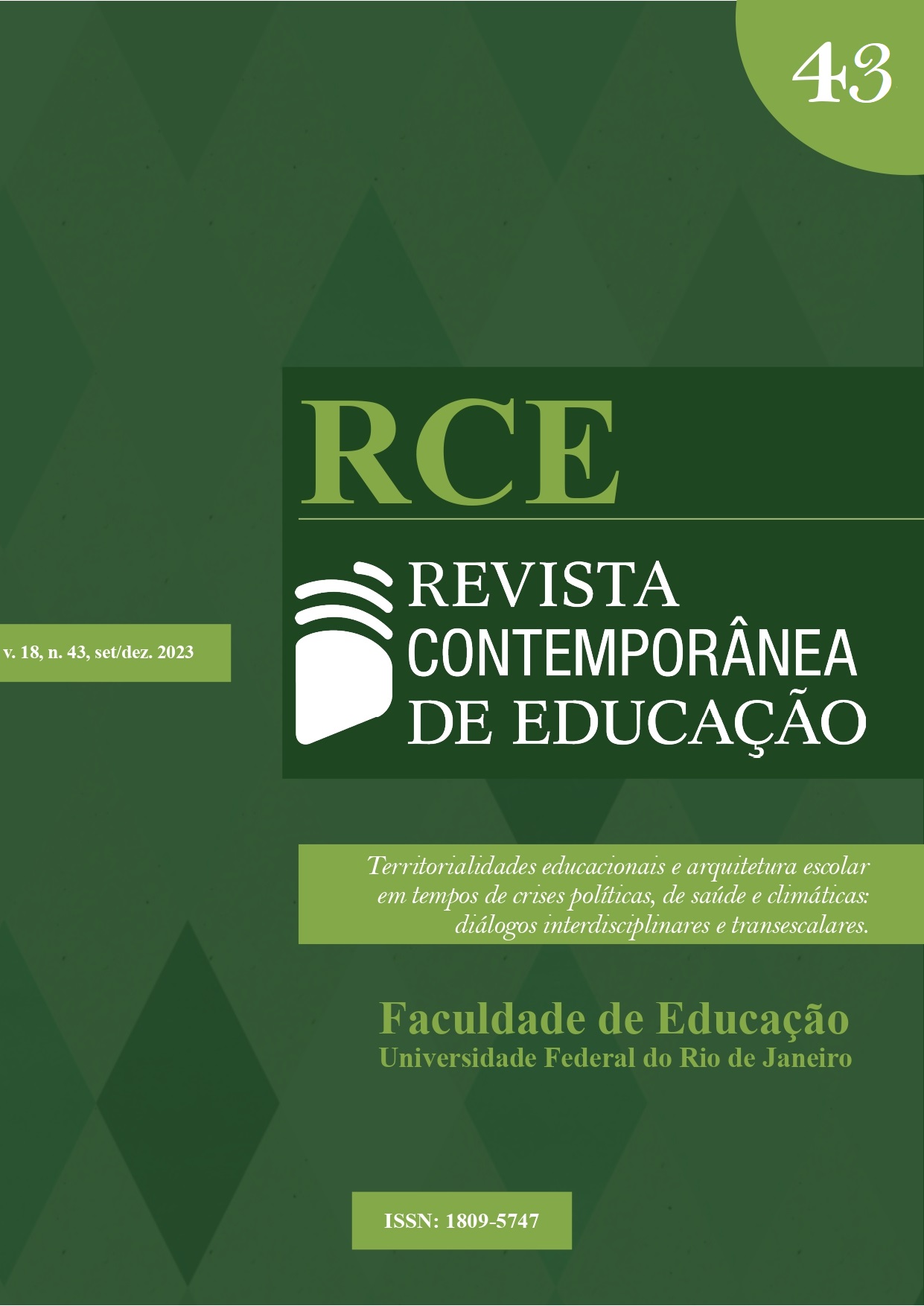Abstract
Teacher education is a spatial practice whose spatiality is often unrecognised in education policy. Through examining the ITT Market Review (a teacher education policy in England), this paper shows the impact of such a policy: not just on where teacher education occurs but also through other spatial effects, such as the locus of teacher education (narrowly conceived around individual classrooms and practices), the shifting of provision to urban centres, and the centralisation of power and control. Such spatial effects have the capacity to exacerbate the supply and retention of teachers in hard-to-staff places, and as such will have a dramatic impact on communities and schools in already disadvantaged areas. Such analysis is important to understand the crisis in teacher supply and attrition, particularly as most countries around the world report some form of teacher recruitment crisis, exemplified by failed recruitment targets and high levels of demand for new teachers.
Keywords: Teacher education; Geography; Spatial justice.
References
Allen, R., Burgess, S., & Mayo, J. (2017). The teacher labour market, teacher turnover and disadvantaged schools: new evidence for England. Education Economics,, 26(1), 1-20.
Allen, R., & Sims, S. (2018). The Teacher Gap. Routledge.
Biesta, G. (2007). Why ‘what works’ won't work: evidence-based practice and the democratic deficit in educational research. Educational Theory, 57(1), 1-22. https://doi.org/doi.org/10.1111/j.1741-5446.2006.00241.x
Biesta, G. (2015). On the two cultures of educational research, and how we might move ahead: Reconsidering the ontology, axiology and praxeology of education. European Educational Research Journal, 14(1), 11–22. https://doi.org/10.1177/1474904114565162
Brooks, C. (2023), When research doesn’t travel: borrowing from the US to influence English policy on teacher education, in Craig, C.J., Mena, J., & Kane, R.G. (eds) Studying Teaching and Teacher Education; ISATT 40TH Anniversary Yearbook. Bingley; Emerald Publishing page 299-314
Burghes, D., Howson, J., Marenbon, J., O’Leary, J., & Woodhead, C. (2009). Teachers Matter: Recruitment, Employment and Retention at Home and Abroad. The Report of the Politeia Education Commission.
Carver-Thomas, D., & Darling-Hammond, L. (2017). Teacher Turnover: Why It Matters and What We Can Do about It; Palo Alto, CA: Learning Policy Institute. https://doi.org/10.54300/454.278.
Cochran-Smith, M. (2016). Stayers, Leavers, Lovers, and Dreamers. Journal of Teacher Education, 55(5), 387-392. https://doi.org/10.1177/0022487104270188
Committee, House of Commons Education. (2017). Recruitment and Retention of Teachers.
Craig, C. J. (2017). International teacher attrition: multiperspective views. Teachers and Teaching, 23(8), 859-862. https://doi.org/10.1080/13540602.2017.1360860
Den Brok, P., Wubbels, T., & van Tartwijk, J. (2017). Exploring beginning teachers’ attrition in the Netherlands. Teachers and Teaching: Theory and Practice, 23(8), 881-895.
Department for Education. (2021). Government response to the initial teacher training (ITT) market review report. London: Department for Education Retrieved from https://assets.publishing.service.gov.uk/government/uploads/system/uploads/attachment_data/file/1059746/FOR_PUBLICATION_Government_response_to_the_initial_teacher_training__ITT__market_review_report.pdf
Department for Education. (2018). Factors affecting teacher retention: qualitative investigation. CooperGibson.
DfE Teacher Recruitment and Retention Strategy 2019
Department for Education. (2019a). ITT core content framework. https://www.gov.uk/government/publications/initial-teacher-training-itt-core-content-framework
Department for Education. (2019b). Early career framework. https://www.gov.uk/government/publications/early-career-framework
Department for Education. (2021) Initial teacher training market review report. https://assets.publishing.service.gov.uk/government/uploads/system/uploads/attachment_data/file/999621/ITT_market_review_report.pdf
Department for Education. (2022a). List of providers accredited to deliver ITT from September 2024. https://www.gov.uk/government/publications/accredited-initial-teacher-training-itt-providers/list-of-providers-accredited-to-deliver-itt-from-september-2024
Department for Education. (2022b). Delivering world class teacher development. https://assets.publishing.service.gov.uk/government/uploads/system/uploads/attachment_data/file/1076587/Delivering_world_class_teacher_development_policy_paper.pdf
DfE Opportunity for all: strong schools with great teacher for your child
Department for Education. (2022). Delivering worldclass teacher development: Policy paper. https://assets.publishing.service.gov.uk/government/uploads/system/uploads/attachment_data/file/1059686/Delivering_world_class_teacher_development_policy_paper.pdf
Fullard, J., & Zuccollo, J. (2021). Local Pay and Tecaher Retention in England. https://epi.org.uk/wp-content/uploads/2021/05/EPI-Local-teacher-labour-markets-2021.pdf
Furlong, J., & Whitty, G. (2017). Knowledge traditions in the study of education. In G. Whitty & J. Furlong (Eds.), Knowledge and the study of education: An international exploration (pp. 13-57). Oxford: Symposium.
Gale, T. (2018). What’s not to like about RCTs in education? In A. Childs & I. Menter (Eds.), Mobilising teacher researchers: Challenging educational inequality (pp. 207–223). Routledge.
Gibson, S., Oliver, L., & Dennison, M. (2015). Workload Challenge: Analysis of teacher consultation responses (C. Research, Ed.). Department for Education.
Helgetun, J. B., & Menter, I. (2022). From an age of measurement to an evidence era? Policy-making in teacher education in England. Journal of Education Policy, 37(1), 88–105. https://doi.org/10.1080/02680939.2020.1748722
Hordern, J. & Brooks, C. (2023) The core content framework and the ‘new science’ of educational research, Oxford Review of Education, DOI: 10.1080/03054985.2023.2182768
Ingersoll, R. M. (2016). Do accountability policies push teachers out? The Working Lives of Educators, 73(8), 44-49.
Lefebvre, H. (1991). The production of space (D. Nicholson-Smith, Trans. Vol. 142). Oxford Blackwell.
Lightfoot, L. (2016, March 22). Nearly Half of England’s Teachers Plan to Leave in Next Five Years. The Guardian. https://www.theguardian.com/education/ 2016/mar/22/teachers-plan-leave-five-years-survey-workload-england
Lynch, S., Worth, J., Bamford, S., & Wespieser, K. (2017). Engaging Teachers: NFER Analysis of Teacher Retention.
Orchard, J., & Winch, C. (2015). What training do teachers need? Why theory is necessary to good teaching. PESGB: Salisbury.
Ovenden-Hope, T. and Passy, R. (2019) Education Isolation: A challenge for schools in England. Plymouth Marjon University and University of Plymouth. Plymouth, Plymouth Marjon University.
See, B. H., Morris, R., Gorard, S., & El Soufi, N. (2020). Attracting and retaining teachers in hard to staff areas: What does the evidence say? https://www.dur.ac.uk/resources/dece/TeacherSupplyFullPaper.pdf
Sims, S., & Allen, R. (2018). Identifying schools with high usage and high loss of newly qualified teachers. National Institute Economic Review, 243(1), 27-36.
Sinclair, C. (2008) Initial and changing student teacher motivation and commitment to teaching, Asia‐Pacific Journal of Teacher Education, 36:2, 79-104, DOI: 10.1080/13598660801971658
Soja, E. 2010. Seeking Spatial Justice. Minneapolis: University of Minnesota Press.
TES, (2022a) Teacher trainee shortage fears as ITT cold spots revealed. Published 12th October 2022. Retrieved from: https://www.tes.com/magazine/news/general/teacher-training-trainee-shortage-fears-itt-shake-cold-spots-revealed
TES, (2022b) Revealed: The ‘catastrophic’ drop in teacher trainee numbers, published 2nd December 2022. Retrieved from https://www.tes.com/magazine/news/general/revealed-catastrophic-teacher-trainee-slump-numbers
Whiting, C., Whitty, G., Menter, I., Black, P., Hordern, J., Parfitt, A., Reynolds, K., & Sorensen, N. (2018). Diversity and complexity: Becoming a teacher in England in 2015-2016. Review of Education, 6(1), 69-96. https://doi.org/10.1002/rev3.3108

This work is licensed under a Creative Commons Attribution-NonCommercial 4.0 International License.
Copyright (c) 2023 Revista Contemporânea de Educação


